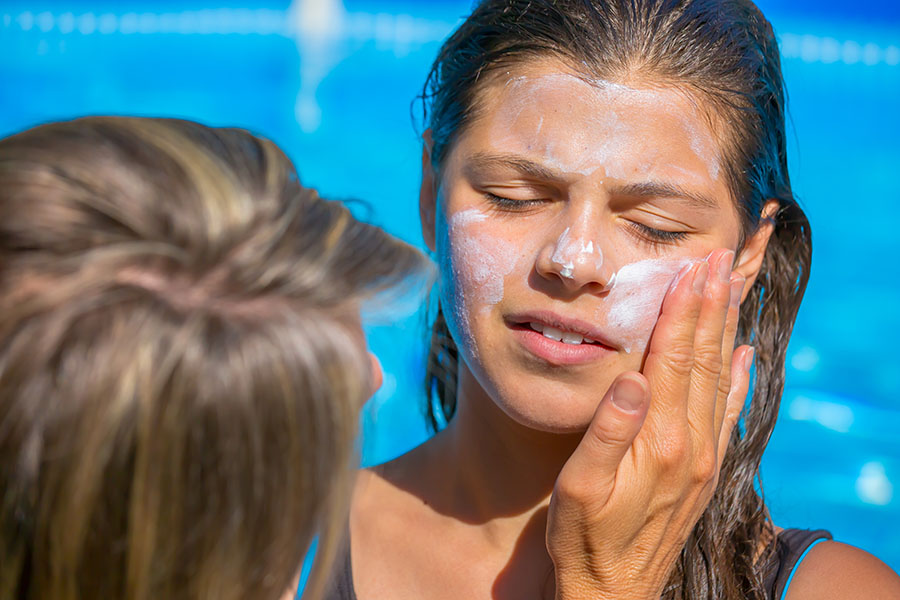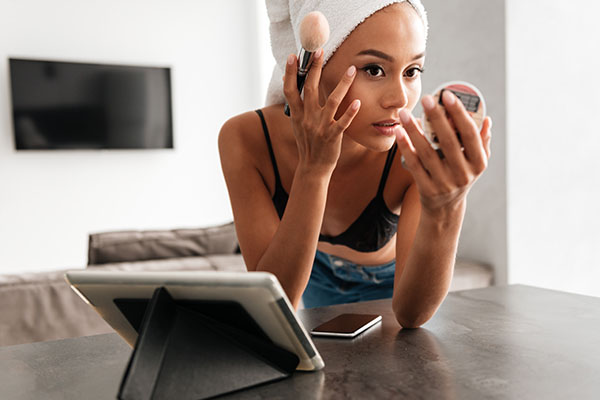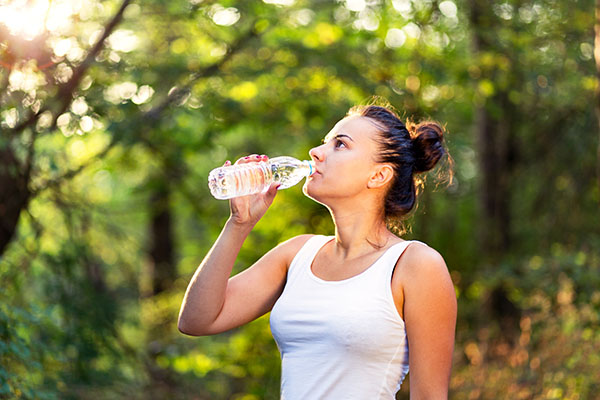
Dermatologists spend their summer days in the same exact sun as the rest of us do, and yet, they somehow manage to keep their skin clear and glowing all season long. Sure, it’s a problem because their job requires them to understand the skin from the inside out, but even the professionals are exempt from the need to change up their skincare game to prevent breakouts and minimize sun damage during the warmer summer months.
Warm weather brings a whole slew of skin-care challenges and a lot of people wonder things like if they still need to moisturize, even if it’s 100 degrees out and they feel oily as heck. Having a solid routine that is applicable to all seasons and all climates is extremely helpful, though there are a few changes you should make as the season changes from winter to spring/summer.
Keep reading for summertime skin-care hacks and yes, another reminder to wear broad-spectrum SPF.
Lighten up your skin-care routine.
Just like you lighten up on your wardrobe, your skin-care routine may need to be a little more lightweight as well. With the heat and humidity of summer, try swapping out your heavier cleanser for a gentle, foaming product.
Adopt a dual-purpose moisturizer.
To help lighten things, you can try switching to a moisturizer and sunscreen combo during the summer. A lightweight moisturizer with SPF of 30 or higher is enough for most people. Thicker moisturizers may lead to clogged pores, which can cause inflammation and acne. So, especially if you have acne-prone or oily skin, dropping your usually moisturizing step with a combination moisturizer/SPF can help keep skin clear and able to breathe.
But don’t stop moisturizing completely.
Again, just because you have an extra layer of sweat on your face doesn’t mean you don’t need a moisturizer. The weather is hot and humid, and your skin feels oily, hot and humid, you should always follow cleansing with a moisturizer. Moisturizers help reestablish the stratum corneum, which is your outermost layer of the skin. This is the part that protects the skin from harmful pollutants and chemicals, as well as helps prevent further irritation or dryness. The lightweight texture of a good SPF moisturizer will help keep that outer layer feeling nourished without the heaviness on your skin.
Use a vitamin C serum.
Vitamin C is an ingredient you can use all year, but it is especially important to use during the summer. Vitamin C does a lot for the skin, including preventing hyperpigmentation, improving the appearance of fine lines and wrinkles, and boosts collagen production. All you need to do is layer a few drops on your skin between cleansing and moisturizer to get the most benefits.
Exfoliate.
While it’s important for us to not over-exfoliate, summertime is a good time to add this step. It is especially helpful if you have oily skin. Of course, you should avoid using your favorite acids everything, it is best to slowly increase the amount of days you exfoliate each week. Alpha-hydroxy acid (known as AHA) is great at opening blocked pores and removing oils that may result in acne.
Cut down your shower time.
This doesn’t mean you should shower at all. But it is common for people to increase the length and number of times they shower each day. Like between workouts, after beach days, and just from good old summer sweat, you may find yourself wanting to shower more than once a day during the hotter months. The reality is, you should keep your shower short, between five to 10 mins. Over showering, or showering in hot water, leads to over-drying your skin, which puts you at risk of developing inflammation and even season eczema.
Make sure all your makeup is non-comedogenic.
Something a lot of people don’t do is look at the ingredient list. If you take a close look at your makeup product labels, you’ll be able to see if they are non-comedogenic, which is a fancy way of saying the product was formulated without pore-clogging ingredients. Choose to wear makeup that is not going to obstruct your skin’s ability to breathe. Look for oil-free sunscreen, oil-free primer, and a lightweight foundation.
Stay in the shade.
You should also wear sun-protective clothing, as well as wide-brim hats and sunglasses while you’re in the sun. Of course, this doesn’t mean you have to wear a long-sleeve shirt while you’re on the beach, but you should be mindful of how much you are exposing your body to direct sunlight. Try to sit underneath an umbrella and most importantly, avoid the midday sun.
Don’t forget to hydrate.
Staying hydrated is always important for our skin, especially during the summer. This includes hydration on the inside of our bodies as well. Try to drink at least eight glasses of water a day. When you’re hydrated, you can also help your skin recover after a sunburn (though you should do your best to avoid getting those in the first place).
SPF is your friend.
Last, but certainly not least, the most important, fundamental, don’t-ever-leave-your-house-without-it tip for having your best skin: Wear sunscreen. The best sunscreen to get the best protection is one that has a broad spectrum of SPF 30 or higher. It’s important to apply it to your face, but don’t forget to cover all exposed skin. Hands, feet, neck, ears, lips, and shoulders are some of the common places people forget to put some on. You should also reapply sunscreen every couple of hours. So, you should also have some extra sunscreen for longer summer days outdoors. Sunscreen. Sunscreen.
SUNSCREEN!




